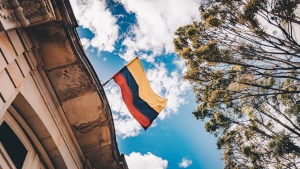Building inclusive political institutions in post-conflict Colombia
The experience of conflict generates a wide variety of effects on human behavior. In this project, we study the intrinsic value of political rights in a lab-in-the-field experiment in Colombia. We extend the analysis of political engagement in post-conflict areas by explicitly considering how engagement with political institutions changes when institutions can be endogenously created by individuals, making them more or less inclusive.
Participants may not only participate themselves in a collective decision (in the spirit of Humphreys et al., 2019, a donation to one of two charities as a proxy for allocation decisions), but also to open (or close) the political institutions to the participation of others. The lab in the field is the most convenient methodology to study endogenous political institutions, as we find it difficult to imagine a large scale study with the necessary level of control.
In the experiment, participants are asked to choose the rules governing a collective decision, and then use these endogenously generated rules to make a substantial collective donation. We elicit their willingness to pay for three political rights that shape the design of the ballots used to make the donations: freedom of expression (including a short message in the ballot), choice (making their preferred charity eligible for the donation), and vote (buying voting rights). The within-subjects’ design controls for the distance between local charities, high or low polarization. The between-subjects’ manipulation compares how much individuals are willing to pay for their own political rights (a proxy for individual political participation) or the political rights of others (a proxy for political inclusion), in two different domains (Conflict-related, and No conflict-related).
Our preliminary results suggest that participants show well-ordered preferences between different political rights, across different levels of polarization, and domains. Interestingly, the intrinsic value of rights is higher when participants can include others at a cost than when participants may acquire the right to participants themselves in the collective decision, only in the Conflict domain. Consistent with the acceptance hypothesis, participants are willing to concede more, and compromise, for the sake of peace, when the participation of others is at stake.


